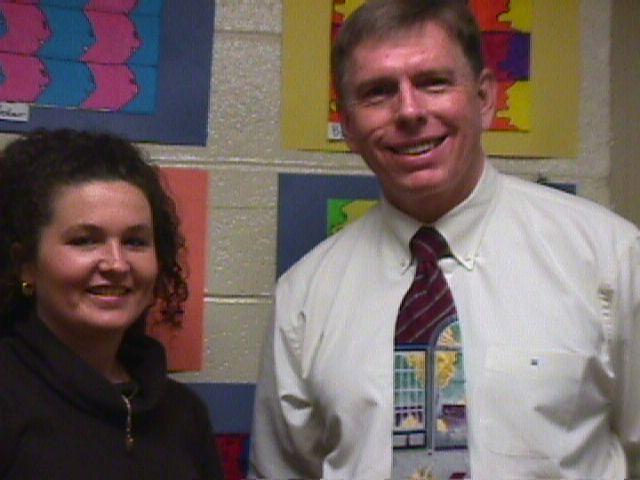Winter
Olympics Graphing Project
Project URL: www.teachersnetwork.org/teachnetusa/aohara/winterolympics.htm
How
it works:
This is a joint program with the classroom teacher and the library
media specialist in which students gather data and statistics on the
medals won by different countries in the Salt Lake City Winter Olympic
Games. The students then analyze and present their data using a
variety of media. They gather information regarding a particular
country and its performance in the 2002 Winter Olympics and then
synthesize this information to create a spreadsheet and graph
utilizing Microsoft Excel. Each student then writes an analytical
paragraph after observing the newly created Olympic graph. They have
to make at least three comparisons using the acquired information. The
results are then posted on the class Web page.
Standards addressed:
Students use a variety of intellectual skills to demonstrate their
understanding of the geography of the interdependent world in which we
live--local, national, and global--including the distribution of
people, places, and environments over the Earth's
surface. Students access, generate, process, and transfer information
using appropriate technologies.
Materials used:
Each student should have access to a computer with an Internet
connection and Microsoft Excel and PowerPoint software.
The
students:
The Winter Olympics Graphing Project is anchored in
fifth grade math and social studies, but it can easily be extended to
additional grades and subjects in its use of the Big Six research
model. Students will need to be familiar with the operation of
Microsoft Excel and PowerPoint.
Overall value:
It is important for students to have an understanding of current
events such as the 2002 Olympic Games and the interaction of different
countries in the games. The ability to gather data, analyze it using
Excel, and present it in with PowerPoint addresses both mathematical
and technological standards. This program can easily be adapted to a
variety of international sporting events.
Tips:
This program works well when students work in teams. Some
countries have more information and activity in the event than others,
so students may need to select a different country early in the
project.
|

About the teachers:
Alice O'Hara has been teaching fifth grade math and language arts
at
Bardonia Elementary School for three years. She attended undergraduate
college at Charleston Southern University in Charleston, South
Carolina, and attended graduate school in New York at Iona College
where she received a master's degree in educational technology.
Mike Frerichs is the library media specialist for Bardonia. He
received
his MLS from SUNY Albany and has a B.A. in mathematics and philosophy
from Doane College in Crete, Nebraska, and a juris doctorate degree
from Creighton University in Omaha, Nebraska.
E-mail:
aohara@ccsd.edu
Subject
Areas:
Math
Social Studies
Technology
Grade
Levels:
4-6
|